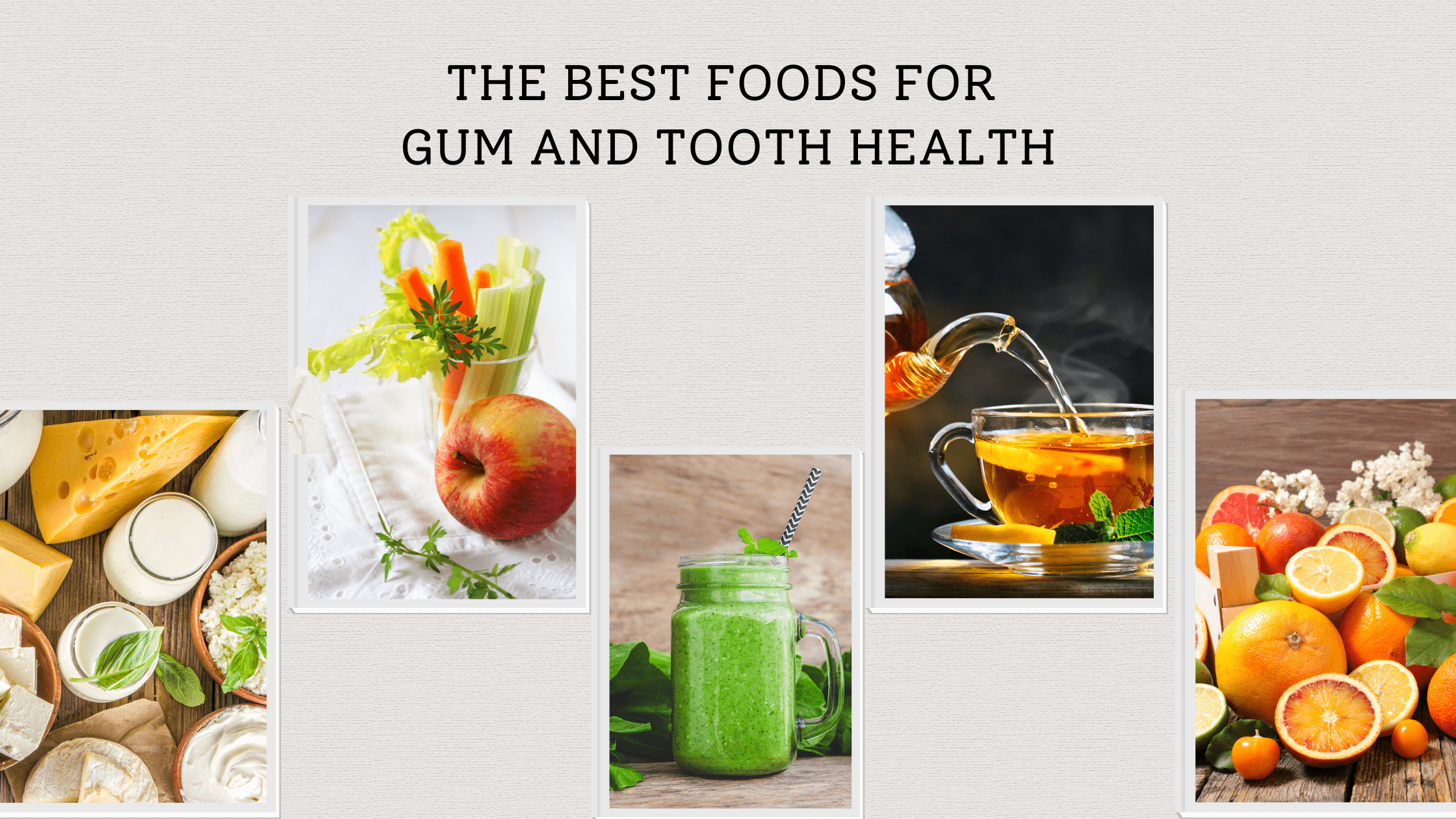Keeping your mouth healthy is crucial to your general health. Food enters our mouths through them, and they are vital to the digestive process. In addition, millions of bacteria reside there, some of which, if left unchecked, can cause gum disease and cavities among other dental problems. Food plays a significant role in oral hygiene, even though brushing and flossing are essential. Our diets have a direct effect on the condition of our teeth and gums; they affect everything from the strength of the enamel to the integrity of the gum tissue. Therefore, the secret to avoiding dental issues and keeping a beautiful smile is a balanced diet full of nutrients that support oral health.
Food Rich in Calcium
Calcium is essential for maintaining strong teeth and bones. In dental health, calcium helps to strengthen tooth enamel, the outer layer of the teeth, making them more resistant to decay and erosion. It also supports the structure of the jawbone, which is crucial for holding teeth in place.
- Dairy products (milk, yogurt, cheese): These are excellent sources of calcium and also provide other nutrients like vitamin D, which aids in calcium absorption.
- Leafy greens (kale, spinach): These vegetables are not only rich in calcium but also contain other vitamins and minerals beneficial for dental health.
- Almonds: Almonds are a great non-dairy source of calcium, as well as providing healthy fats and protein.
- Fortified foods (orange juice, tofu): Some foods are fortified with calcium, meaning calcium is added during processing. Examples include fortified orange juice and tofu, providing additional options for calcium intake, especially for those who may not consume dairy products.
Food Rich in Vitamin C
Vitamin C plays a crucial role in maintaining healthy gums by aiding in collagen production, which is essential for keeping gum tissue strong and resilient. Without enough vitamin C, gums can become weak and prone to bleeding, leading to gum disease and other oral health issues.
- Citrus fruits (oranges, lemons, grapefruits): Citrus fruits are renowned for their high vitamin C content, providing a refreshing burst of this essential nutrient. Enjoying citrus fruits regularly can help support gum health and overall immune function.
- Bell peppers: Bell peppers, especially the brightly colored varieties like red and yellow, are excellent sources of vitamin C. They not only add crunch and flavor to dishes but also contribute to gum health and collagen production.
- Kiwi: Kiwi is a tropical fruit packed with vitamin C, making it a delicious and nutritious choice for promoting gum health. Adding kiwi to your diet can help strengthen gums and reduce the risk of gum disease.
- Strawberries: Not only are strawberries a sweet and juicy treat, but they also contain significant amounts of vitamin C. Incorporating strawberries into your diet provides a tasty way to support gum health and maintain a bright smile.
Crunchy Fruits and Vegetables
Crunchy fruits and vegetables are beneficial for oral health because their firm texture helps stimulate saliva production, which aids in neutralizing acids and washing away food particles and bacteria. Additionally, the act of chewing crunchy foods can help strengthen gums and promote blood circulation in the gums, which contributes to overall gum health.
- Apples: Apples are not only delicious but also packed with fiber and water, which helps cleanse the teeth and gums while stimulating saliva production. The natural abrasiveness of apples also helps scrub away plaque buildup on the teeth.
- Carrots: Carrots are rich in vitamin A, which is essential for maintaining healthy tooth enamel. Their crunchy texture helps stimulate gums and promote saliva production, while the vitamin A supports gum health and aids in the healing of mouth sores.
- Celery: Celery is an excellent choice for oral health due to its fibrous texture, which acts as a natural toothbrush, scraping away food particles and bacteria from the teeth and gums. Chewing celery also massages the gums and promotes circulation.
- Cucumbers: Cucumbers are low in calories and high in water content, making them refreshing and hydrating for the mouth.
Water
Proper hydration is vital for maintaining optimal oral health. Water helps to keep the mouth moist, preventing dryness that can lead to bad breath and increased risk of cavities. Adequate hydration also supports saliva production, which is essential for neutralizing acids, remineralizing teeth, and washing away food particles and bacteria.
Water acts as a natural cleanser for the mouth, rinsing away leftover food particles and bacteria that can contribute to plaque formation and tooth decay. Swishing water in the mouth after eating or drinking helps to dislodge debris from teeth and gums, promoting fresher breath and reducing the risk of oral infections. Additionally, water is free from sugars and acids that can harm tooth enamel, making it an ideal choice for maintaining oral hygiene throughout the day.
Conclusion
In conclusion, prioritizing foods rich in calcium like dairy products and leafy greens, vitamin C sources such as citrus fruits, and vitamin D-rich foods like fatty fish can significantly contribute to maintaining optimal dental health. Incorporating crunchy fruits and vegetables along with probiotic-rich foods such as yogurt into your daily diet can further enhance your oral hygiene routine. Remember, alongside these dietary choices, regular dental check-ups and oral hygiene practices are essential for preventing issues and ensuring a bright smile. Should any dental emergencies arise, seeking the assistance of an emergency dentist Everett promptly is crucial for timely and effective treatment.










